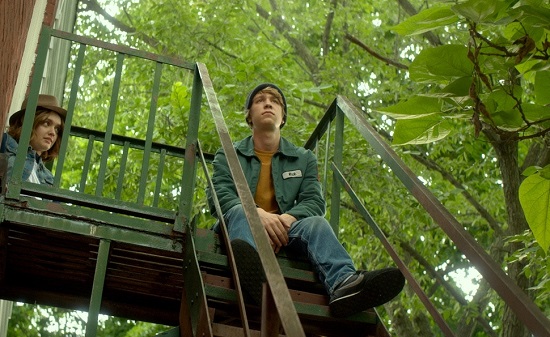With a name like Me And Earl And The Dying Girl, it’s a safe bet Alfonso Gomez-Rejon’s film wants to make you feel something. You presume entering the cinema that what you’re about to see is going to be an emotional rollercoaster about a young girl dying.
However, in this film, she takes a backseat to the navel-gazing main character Greg (Thomas Mann), a boy with low esteem who’s forced by his mother to hang out with Rachel (Olivia Cooke), our cancer-ridden girl. When he’s not making movies with best friend Earl (RJ Cyler), he’s using Rachel’s illness as a backdrop for his own growth as a human being.
Greg’s a selfish boy with almost no redeeming features. Sometimes he can be witty and charming, but he mostly functions as a reminder of how hard it can be to be a relatively affluent white person. Given that the script (Jesse Andrews adaptation of his own novel) makes this the main narrative thrust, the nice, boring white boy keeps his position as the main character. None of the other characters, not even Rachel, are made interesting enough to devote the same attention to. No, this is Greg’s journey of self-improvement – thank god that girl was dying so he could go on it.
The white boy’s friends are reduced to minor characters, only there to help him on his journey. This is a terrible shame because both of the other people in the title are far more interesting than Greg. Earl, his best friend and co-filmmaker, is hilarious, but he gets relegated to the side-lines unless helping Greg come to realise his worth. Earl is also the victim of a vicious fact of American life – African-Americans live on the rough side of town. Instead of exploring why the black friend lives in a run-down house whilst Greg gets a nice suburban life, the film presents its racial inequality without comment, as if pointing out clichés and stereotypes is equal to being above them. By making the narrative hinge on Greg – who only sees his own, minuscule pain – anything outside of his story is lost, despite it being far more interesting and socially relevant.
Rachel is also reduced to nothing more than a guide for Greg. Her slow death from a horrible disease is nothing more than a lesson for him to learn. He’s the important one, the one whom the cancer is really having an impact on. Rachel’s cancer makes him more aware of people around him. Her cancer makes him a better friend. Her cancer gets him into college.
None of the characters feel real enough to exist. Everyone is a quirk – this kid makes films so his personality is consumed entirely by filmmaking, this white boy wants to be a rapper so has dreads and only speaks in rhyme. There is nothing of more depth than the single ‘charming’ quality that makes up the characters. None of it feels genuine. We’re constantly waiting for the actual personality to come through so we can relate to them on more than a superficial level, but it never does.
No spoilers here, but it must be said that in its desperation to make us feel something, the film resorts to dirty tricks and forces the audience into feeling something instead of letting them have a genuine emotional connection. The film wants to be called ‘honest’ and ‘authentic’ but it far too obviously shows its construction to deserve accolades like that. It’s little more than manipulative.
Me And Earl And The Dying Girl is in cinemas now


